The response of the Carpathian governments to the coronavirus epidemic was swift and decisive. It did not resemble the reaction of some Western countries, which were willing to put economic benefits above social costs and decided not to restrict the functioning of the state. Today, the situation in these countries is becoming increasingly difficult. The number of cases is in the tens of thousands, and the number of deaths is in the tens of thousands.
The response in the Carpathian states has been exemplary. First, large restrictions were imposed, allowing time to replenish equipment, medicines and implement appropriate procedures, and now the process of unfreezing the economies has begun. States that did not do so under pressure from their own public opinion are forced to take similar steps, but are now already in a dramatic epidemiological situation.
At the time of the crisis, a large burden of struggle against the epidemic fell on the nation-states, which began to fight on their own. Compared to the countries of Western and Southern Europe, the Carpathian states were successful in this regard. It would not have happened without the responsible attitude of our societies, the vast majority of which, in the face of the threat, mobilized both to comply with quarantine regulations and to form social groups supporting the fight against the epidemic in various ways (some sewed masks, others shopped for the elderly, others organized fundraisers to buy needed equipment for medical services, etc.). This response is not surprising. We form, both at the level of countries and the entire macro-region, a specific cultural and historical community, full of common, often dramatic experiences from the past, thanks to which we are able to mobilize effectively in moments of danger.
How was the epidemic fought in the Carpathian countries?
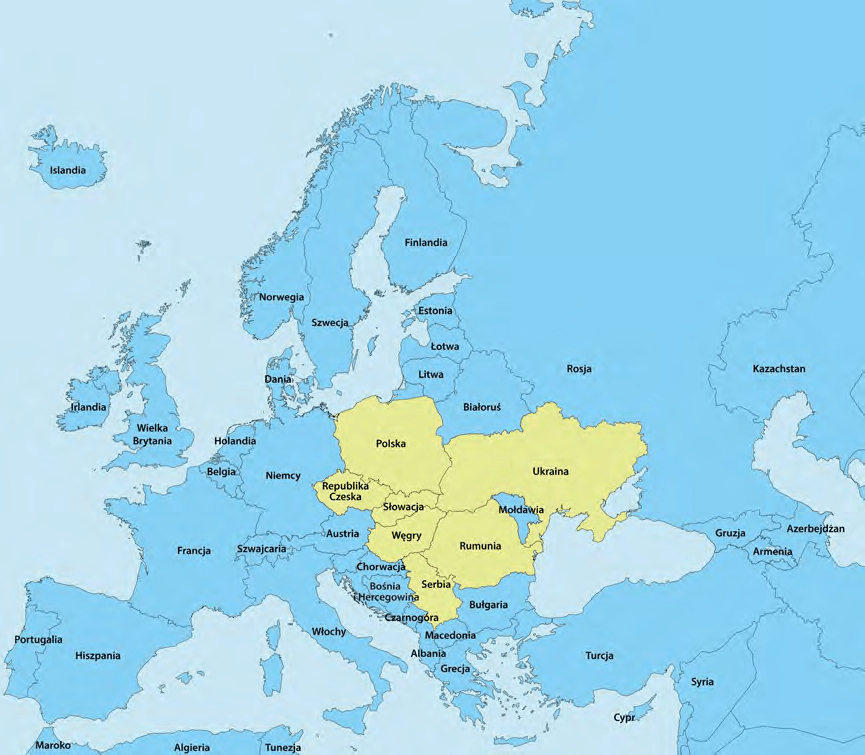
Poland responded to the threat as one of the first, On March 13, a state of epidemic emergency was introduced throughout the country. On 15 March, border control was temporarily re-established and borders were closed to foreigners, while Poles returning to the country had to undergo a 14-day home quarantine. Restrictions were placed on shopping malls (only grocery stores, drugstores, pharmacies and laundromats remained open). Public gatherings of more than 50 people were banned and the operation of restaurants, bars and cafes was restricted to take-away and delivery sales only. A "Flight Home" campaign was organized for Poles who were outside the country. As of 12 March, classes in kindergartens, schools, educational institutions and universities were suspended, and distance learning was introduced. On March 20, an epidemic state was imposed and security measures were tightened. Fines were increased from 5,000 to 30,000 for quarantine violations and mechanisms to track whether a person is in a place.
A network of infectious disease hospitals was organized - at least one per province. All mass events were cancelled. Employers were also urged to implement remote working to the maximum. The movement of all persons was restricted. One could not leave home except to commute to work, to volunteer for COVID-19 and to run errands necessary for daily life. On April 1, further restrictions were imposed. Each store (both small and large), as well as each service outlet could be entered by a maximum number of people equal to the product of all the cash registers and the number 3. Similar regulations were introduced for market places. In post offices there could be at one time as many people as the number of postal windows multiplied by 2. Large construction stores were closed on weekends. All stores had to comply with stricter safety rules.
As of April 2, customers were required to shop with disposable gloves. From 10:00 a.m. to 12:00 p.m., stores and service establishments began serving only people over 65 years of age. Hotels and other accommodations (operating on a short-term rental basis) were closed. They can only operate if there are people in quarantine or isolation, and if medical personnel are present. The list of persons subject to mandatory home quarantine has been expanded. Everyone who lives with the person to be quarantined was included. Hairdressers, beauticians, tattoo and piercing salons were closed. Rehabilitation and massage - both in public and private facilities - have been suspended, except in situations where rehabilitation is absolutely required by the patient's health condition. Unaccompanied children under the age of 18 have been banned from leaving home. It is prohibited to be on beaches and green areas that have public functions. The ban applies to parks, greens, promenades, boulevards, botanical and zoological gardens and Jordan gardens. The use of city bicycles was also restricted. The obligation to maintain at least 2 meters distance between pedestrians was introduced. Parents with dependent children (up to 13 years of age), persons with disabilities or unable to move independently and their guardians were excluded from this obligation. Public institutions were ordered to perform their duties remotely.
The rule of "as many passengers as half of the seats in the vehicle" was introduced in collective public transport. This requirement was also extended to vehicles with more than 9 seats, including non-public transport. Employers were required to provide safety measures for employees. Individuals' workstations must be at least 1.5 meters apart, employees must use gloves and have access to disinfectant fluids. A ban on entering forests has also been introduced. Simultaneously with the introduction of these restrictions, the government launched a campaign to purchase protective measures and switch domestic production to fight the epidemic.
Since April 20, there is a gradual lifting of restrictions with the introduction of the obligation to cover the mouth and nose. The process of unfreezing the economy has begun.
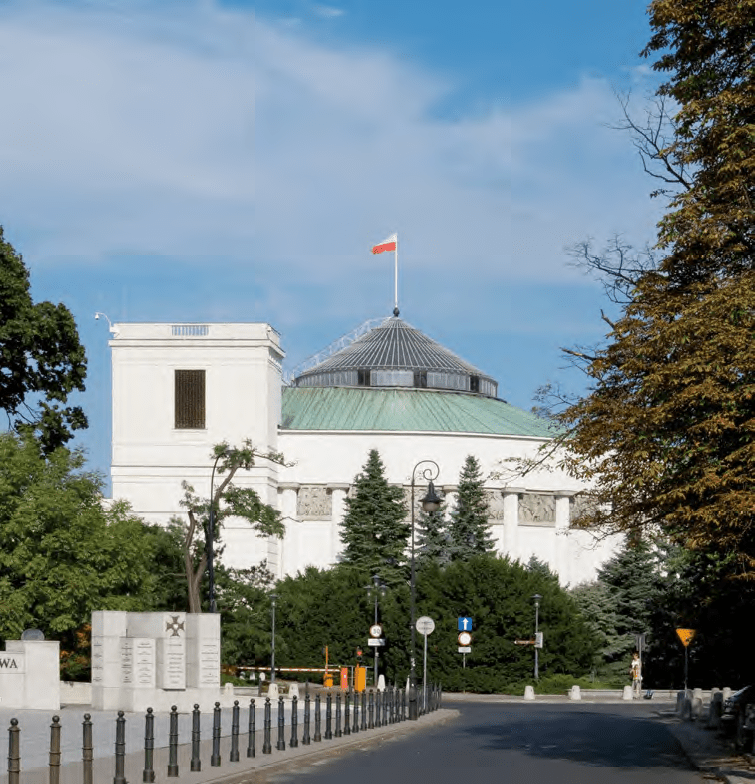
Photo: EUROPA KARPAT Spokesperson for Cooperation
In Romania On March 16, the President declared a state of emergency throughout the country. A military decree on measures to prevent the spread of COVID-19 was announced. Foreigners and stateless persons were banned from entering Romania (except for some exceptions like transit, family members). Public meetings and international travel were banned. All commercial flights were suspended. Schools, restaurants, hotels, cafes and clubs were closed. Mandatory isolation and quarantine was introduced for all persons entering Romania (Suceava, along with eight neighboring municipalities of Tandarei, Ialomita County - under total quarantine) - severe penalties were introduced for violating the bans. It was made mandatory to wear protective masks, even homemade ones. All persons were forbidden to travel outside their place of residence (household), with exceptions related to: occupation, purchase of goods for basic needs, medical assistance, blood donation, humanitarian aid or volunteering, short trips in the vicinity of their own homes, walking pets, trading in agricultural products, accompanying children, helping the elderly, sick or disabled, death of a family member (in all cases a special declaration filled out by the individual or employer is necessary).
Travel by persons 65 years of age and older, away from their residence (household), is permitted only between 11 a.m. and 1 p.m.00 p.m. for the purpose of: purchasing goods for basic personal and pet needs, medical assistance that cannot be postponed and provided remotely (such as planned cancer treatment, dialysis or similar), using personal, family, caregiver or special sanitary transport (personal signed statement), short trips in the vicinity of one's own home in connection with personal physical activity or the needs of pets, accompanying children, assisting the elderly, sick or disabled, the death of a family member (travel outside of this time frame is permitted only if it is in the interest of a professional or agricultural activity). Persons 65 and older may also leave their homes between 8:00 p.m. and 9:00 p.m. to attend to the needs of pets, but only near their residence (household).
Special provisions have been made for various occupational categories such as fishing, agriculture, auto service and sales, food market, pharmaceuticals, border workers, social services, medical personnel, drivers and pilots, etc. Communication systems and computer applications necessary to communicate in real time and permanently with quarantined or isolated persons at home are in place. Drivers of cargo vehicles with a maximum permissible load of more than 2.4 t, must undergo quarantine or isolation between trips, but not exceeding 14 days, (locations provided by the employer, home isolation or locations provided by public authorities - decided by drivers).
Local public authorities are required to identify and keep records of homeless people and provide them with shelter and care. Public institutions and business entities are required to mark the sales area with visible signs to guide people at a safe distance of at least 1.5 meters. Devices with disinfectant solutions have been installed at all entrances to buildings located in the area of local public administration bodies and periodic disinfection of elevators, stairwells and other common areas has been introduced.
During a state of emergency, prices for electricity and heating, natural gas, water supply, sanitation, and fuel may not increase above the level on the date of the military decree; they may be reduced only on the basis of demand and offer. In addition, government or private medical alerts, press releases, text, photos, audio, video of public interest supporting the prevention of the spread of COVID-19 shall be broadcast free of charge and shall be added to advertising placements.
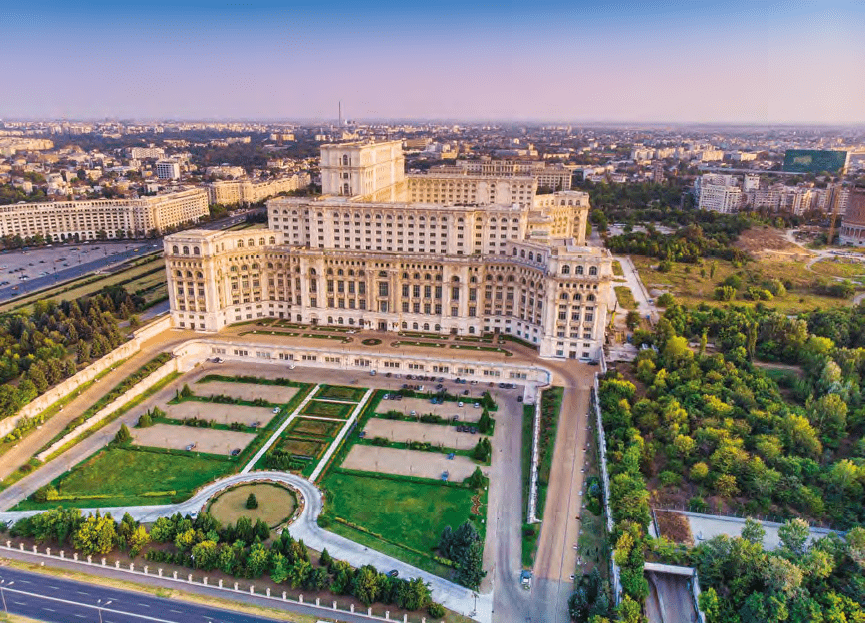
Romanian Parliament Palace, Bucharest
Photo: EUROPA KARPAT Spokesperson for Cooperation
On the territory of the Slovak Republic All airports were closed and international transport by trains, boats and transit buses through Slovakia was suspended. The borders have been closed to foreigners (except for relatives of Slovak citizens, persons with valid residence in Slovakia, temporary or permanent residence in the border region of the neighbouring state within 30 km from the Slovak border, personnel of diplomatic missions, foreign citizens who are exempted by the Public Health Office of the Slovak Republic, foreigners - drivers of road freight transport and trucks, drivers and crew of bus transport, medical care, employed in funeral services).
Slovak citizens and permanent residents are required to wear face shields (mask, scarf, etc.) in all public places (grocery stores, public transportation, etc., including outdoors). Isolation in the state quarantine station is mandatory for individual and organized forms of travel. It lasts for the time necessary for the diagnosis of COVID-19 disease, and after a negative result, the person is required to remain 14 days in home isolation. Isolation of persons living in the same household is also mandatory (isolation in state quarantine centers does not apply to pregnant women, persons with reduced mobility, with certain diseases, over 75 years of age, enjoying diplomatic privileges and immunities on the territory of Slovakia. Slovak hospitals accept emergency cases and cases by prior appointment. State offices operate only by prior appointment. Travel on domestic buses and trains is on a limited schedule. Grocery stores and pharmacies remain open. From 09:00-12:00, only people 65 and older can shop. All stores are closed on Sunday. Shopping centers are closed, except for grocery and pharmacy stores. The Slovak government has strongly urged people over 65 not to leave home unless absolutely necessary. Hotels and restaurants are closed (restaurants offer delivery and take-out services). All universities, schools and kindergartens are closed. There is a ban on mass events.All recreational facilities, water parks and ski resorts, spas and wellness centers and bars are closed until further notice. A state of emergency has also been declared in health care services. Disinfection of public transport vehicles has been ordered in Bratislava and many churches have suspended services until further notice.
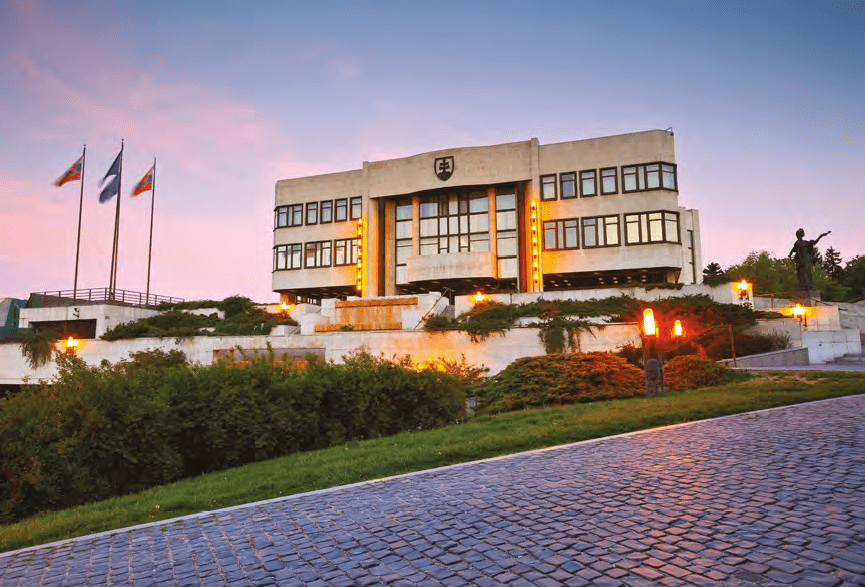
Photo: EUROPA KARPAT Spokesperson for Cooperation
In Ukraine suspended all commercial international passenger services, including flights, trains, and passenger buses to and from Ukraine. Airlines, including Ukraine International Airlines, conducted repatriation flights on an ongoing basis. Foreigners without a residence permit cannot enter Ukraine. All travelers (Ukrainian citizens and foreigners) arriving in Ukraine must undergo a 14-day quarantine period. Schools, educational institutions and universities have been closed. The wearing of masks in public places has been made compulsory.
Prohibited groups of more than two people (exceptions include minor children and parents or guardians) and unaccompanied children under 14 in public places. Visiting parks, public gardens, recreational areas and coastal areas was prohibited, except for walking with animals by one person. Made it mandatory to wear an identification document in public places. Isolation has been introduced for all persons over the age of 60 (except for those involved in preventing the spread of COVID-19 and in roles in critical infrastructure), as well as persons sick with COVID-19 or suspected of being infected with COVID-19. Shops and services have been closed except for grocery stores, pharmacies, banks, and gas stations (in Kiev, grocery stores and pharmacies are limited to one customer per 10 m2 and require masks to be worn). The subways in Kyiv, Dnipro, and Kharkiv are closed. Other city transportation, including buses and streetcars, can carry no more than 10 passengers at a time. Urban transport in Kiev is limited to essential personnel with passes only. Ukrainian railroads have suspended all domestic passenger services. In addition, inter-city bus travel (excluding private cars) is prohibited. All drivers and passengers of vehicles entering Kiev must have their temperatures measured, and if someone's temperature is above 37.5 degrees Celsius and there are signs of acute respiratory illness, the person is examined and sent to isolation.
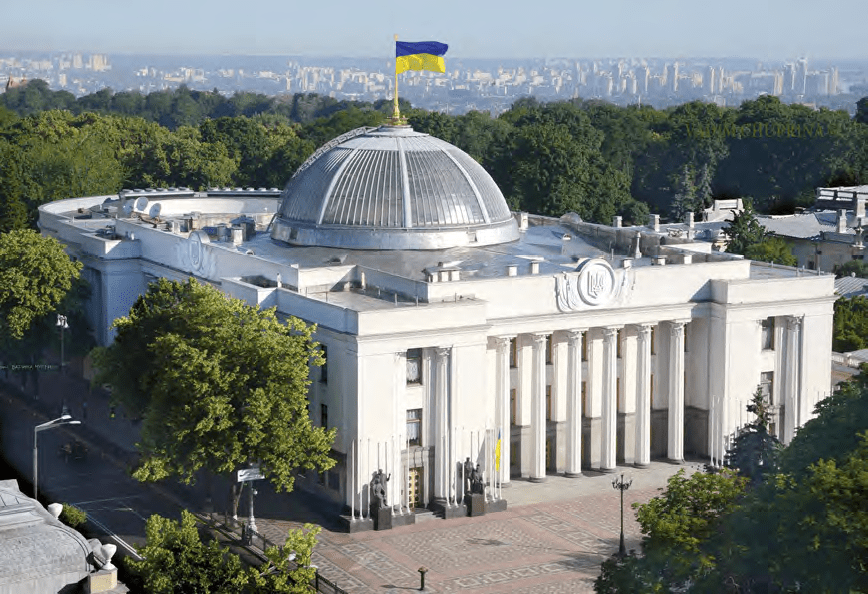
Seat of the Verkhovna Rada of Ukraine, Kyiv
Photo: EUROPA KARPAT Spokesperson for Cooperation
In Hungary also introduced restrictive measures to combat coronavirus. On March 11, the Hungarian government declared a state of emergency, and on March 30, the National Assembly passed a law that made the state of emergency indefinite and allowed the prime minister to rule by decree during this time. A 14-day isolation period was imposed after traveling abroad. The borders were closed allowing only Hungarian citizens to enter the country. It was restricted to leaving home only for work and shopping and basic needs. Stores have been closed except for grocery stores, drugstores, pharmacies and markets. When moving around, people must keep a distance of 1.5 meters from each other.
People 65 and older can store in stores from 9 a.m. to 12 p.m. Assemblies have been banned. People were allowed to go for walks only in small groups. All public events have been canceled. Schools and universities were closed. To curb the spreading of panic, a law was introduced making the deliberate dissemination of misleading information that impedes the pandemic response punishable by up to five years in prison (this was criticized by the EU), and violations of quarantine punishable by up to three years).
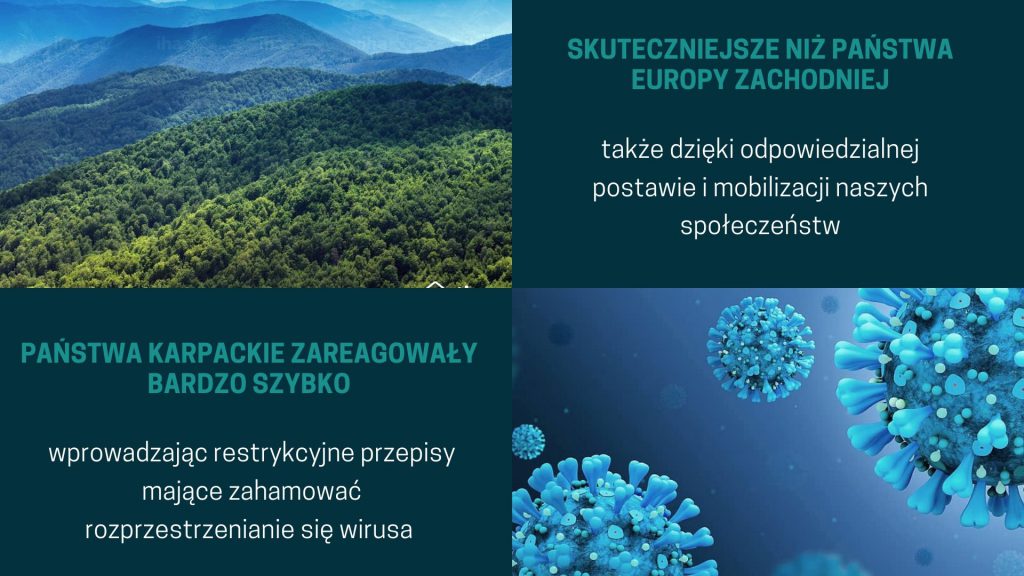
Text: Andrew Paniw
Source: U.S. Embassies



